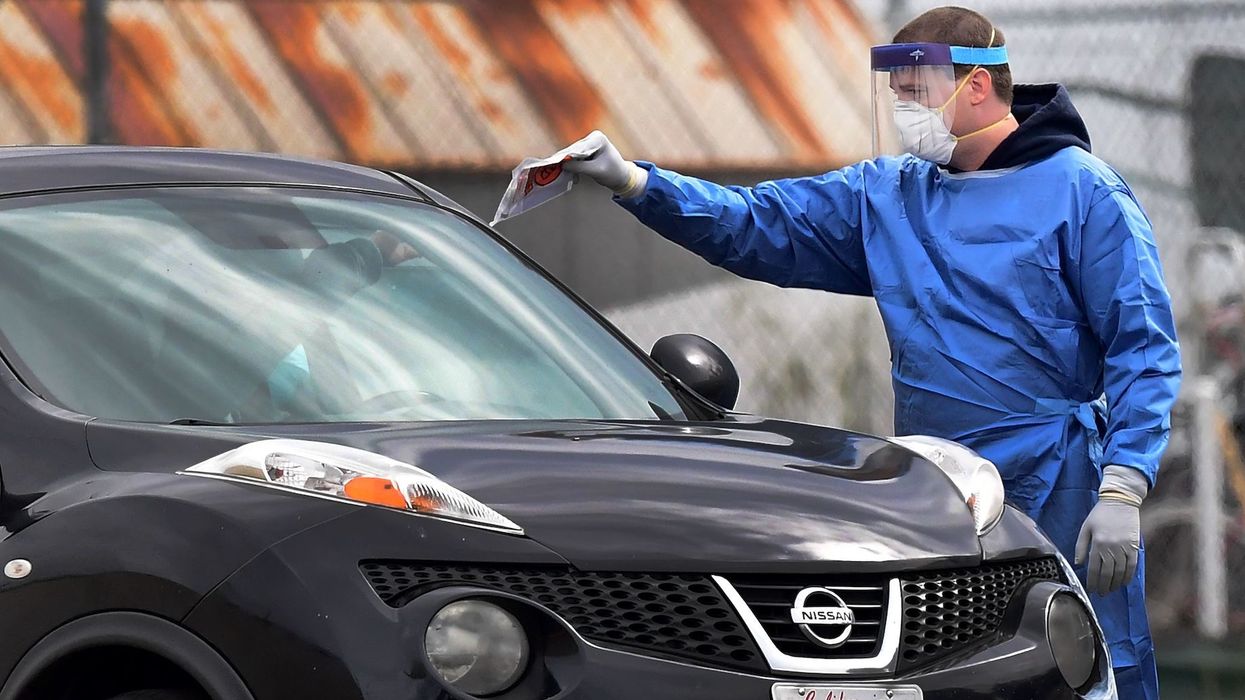
A health care worker offers a coronavirus test kit to a driver on Friday at the appointment-only San Gabriel Valley Airport testing site in El Monte, California. (FREDERIC J. BROWN/AFP via Getty Images)

It creates a 'difficult choice' about how to reopen the country
The results of an antibody test study including thousands of residents in California's Santa Clara County suggests that there have been tens of thousands more COVID-19 infections in the county than officially reported, according to ABC News.
What the study found: The study tested 3,300 residents of Santa Clara County and found that between 2.5% and 4% of them tested positive for COVID-19 antibodies, indicating that they had been infected in the past and had possibly developed immunity.
From that result, researchers estimated that between 48,000 and 81,000 people in the county (population 2 million) have already gotten COVID-19. Currently, the county has officially recorded approximately 1,000 cases.
What this could mean: This is just the latest data providing evidence that the coronavirus has spread far more broadly than we are able to confirm through COVID-19 tests, which are still scarce and typically only administered to those who are exhibiting symptoms.
"Our findings suggest that there is somewhere between 50- and 80-fold more infections in our county than what's known by the number of cases than are reported by our department of public health," Dr. Eran Bendavid, the associate professor of medicine at Stanford University who led the study, told ABC News' Diane Sawyer.
Other considerations: With this study, it's important to note that the use of online ads to recruit participants in the study could have skewed the sample some.
It's also not clear what level of immunity people with the antibodies have, and how long it might last. Assuming the antibodies provide some level of immunity, however, this study also indicates that potentially 95% of the country has not been exposed to the virus and therefore has no immunity.
As states prepare to gradually ease social distancing mandates and allow public life to resume normally, a lack of immunity in the population creates a possibility of coronavirus outbreaks once people start gathering again.
"[W]hat that means for things like, are we going to wait for people to get infected to get antibodies in order for them to get back to work ... knowing that well upwards of 90% of the population doesn't have antibodies is going to make that a very difficult choice," Bendavid told ABC News.